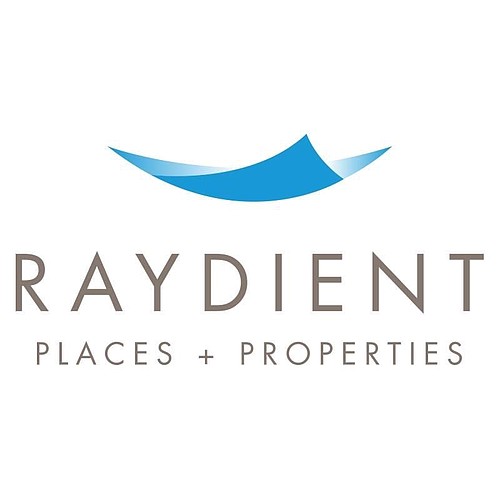
Ending a legal battle that began in 2018, Raydient Places + Properties LLC and the Nassau County Board of Commissioners agreed to settle their dispute with orders entered Feb. 6 in the 4th Judicial Circuit.
Raydient, a division of Rayonier Inc., is the developer of the Wildlight mixed-use community near Yulee in Nassau County.
“We look forward to continuing to collaborate with Nassau County officials to create special places, enhance the quality of life for county residents, and responsibly steward our natural resources and all we love about Nassau County,” Chris Corr, Raydient senior vice president of real estate development, said in an email.
In addition to ending all pending litigation, the settlement indicates Nassau County agrees to reimburse Raydient $300,000 for attorney fees and costs.
The dispute began with Raydient’s allegation that the Nassau County Board of Commissioners tried to make the developer pay for park construction and maintenance throughout the county as a condition of building Wildlight.
That was not part of the original land use agreement the commission approved for Wildlight.
In 2011, Nassau County approved creation of the East Nassau Community Planning Area on about 24,000 acres of timberland owned by Raydient.
The community planning area is a sector plan governed by state law and became part of the county’s Comprehensive Plan. Up to 24,000 residential units and 11 million square feet of commercial space were authorized to be built within the area.
During the approval process, county ordinances required Raydient to pay recreational impact fees and to donate land to the county for the construction of community and regional parks and recreation facilities.
Raydient said it paid the impact fees and donated 12,000 acres, more than the required amount of land, to the county.
In 2013, the commission approved the first development order for Raydient’s headquarters, some commercial development and a few residential units.
In 2015, Raydient and the commission agreed to create a stewardship district, a limited form of government over an area of development that can create, finance and maintain public infrastructure.
Created by the Legislature, the district is empowered to issue bonds, levy fees and assessments or implement taxes.
Site preparation began in spring 2016 for Wildlight’s first phase.
Raydient submitted an application in 2016 for approval of the second phase of the project.
The second phase, 1,080 acres, included 1,500 active adult units with on-site recreation mitigation.
During the approval process, disagreement began between Raydient and the county over the planning, building and funding of community and regional parks in the planning area.
Raydient held that Nassau County had a deficiency in its public parks and recreational facilities.
The county retroactively sought to have Raydient and/or the stewardship district finance the community and regional parks in the planning area rather than exclusively through developer park and recreation impact fees and countywide taxes.
As a condition for approving the second stewardship district, Nassau County officials demanded that Raydient and/or the district pay $13 million to $15 million for the construction and maintenance of the public parks and facilities.
Raydient refused, contending that the county’s comprehensive plan and applicable ordinances required the developer only to donate land.
Despite their inability to reach a consensus on who should pay for public parks and recreational facilities in the planning area, Raydient and the commission successfully lobbied the state Legislature in 2017 to enact HB 1075 to create the East Nassau Stewardship District.
The bill granted the Stewardship District Board of Supervisors the power to provide public parks and public facilities for indoor and outdoor recreational, cultural and educational uses.
The disagreement landed in court in 2018 with Raydient alleging the county continued to deny approval of Raydient’s application for the second development unless Raydient and the stewardship district agreed to commit $13 million to $15 million to the county for community and regional parks in the community planning area.
The county asserted that HB 1075 transferred to Raydient and the district the county’s obligation to create and maintain parks and recreation facilities in the community planning area.
Raydient maintained that its obligation under the county’s Comprehensive Plan and applicable land use provisions was only to donate the land for community and regional park facilities. Raydient further claimed that HB 1075 did nothing to alter the county’s responsibility to fund, build and maintain park facilities through impact fees and countywide taxes.
The dispute continued with Raydient contending that it was not obligated to provide park facilities in the community planning area beyond its original land donation, nor was it mandatory under HB 1075 to use the power given to the stewardship district to finance and construct public facilities.
According to the lawsuit, in retaliation for Raydient’s efforts, the commission enacted an ordinance creating the community planning area Recreational Municipal Service Taxing Unit.
It authorized the commission to collect annual ad valorem taxes on real and personal property within the planning area to pay for recreation services, maintenance and facilities within the taxing unit.
Raydient said the commission intended for parks and recreational facilities in the community planning area to serve all county residents regardless of whether they own land in it.
Raydient contended that Nassau County’s actions violated the federal and state constitutions as well as Florida law and should be declared invalid.